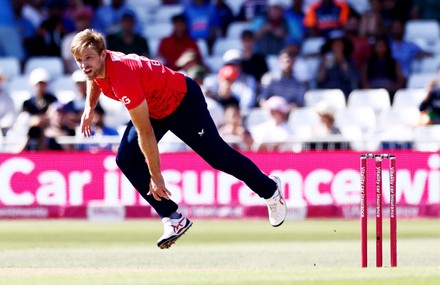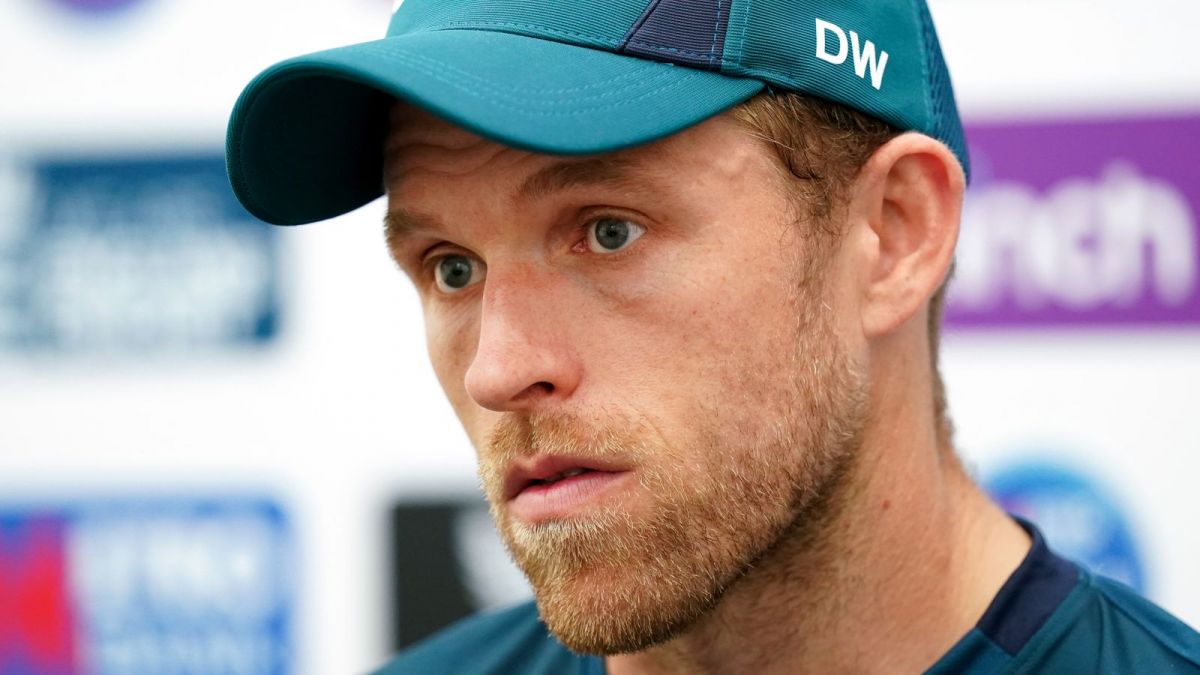David Willey has announced that the ongoing ODI World Cup will be his last time donning an England Jersey. This decision marks the end to an illustrious career by one of the most underrated bowlers of the generation. It is speculated online that his decision to retire may be due to a combination of England’s performance at the World Cup in India and the fact that he was the only member of the World Cup squad to be omitted from central contracts.
Table of Contents
About David Willey
Willey is a left arm swing bowler that is known for his ability to swing the ball both ways. His strength as a white-ball bowler is his ability to take wickets with the new ball in the early overs, when openers are still trying to settle in. His efficiency and discipline in the Powerplay also make him a valuable asset to captains, because of his ability to restrict the flow of runs.
In recent years, David Willey has also shown that he can be a useful bowler in the Death Overs. The recent increase in bowlers using slower balls to deceive batsmen has led captains to see David Willey as someone who can use his defensive ability to save runs.

While David Willey’s batting skills may not have been prominently showcased on the international stage, they become more evident and pronounced when he plays domestic cricket. His aggressive approach and power hitting can be well used when he plays lower down the order as a genuine middle order batsman. He also reads the game incredibly well and can use his temperament to drag his team out of sticky situations.
Willey’s versatility sets him apart. His ability to perform well as both a batsman and a bowler in any phase of the game has made him a valuable asset for England in ICC tournaments. His absence in the future will certainly be felt.
Retirement
Willey made his retirement announcement via a heartfelt letter shared on his Twitter account, expressing his gratitude to his fans and well-wishers. In his letter, he talks about how amazing it’s been to call himself an England International. He mentions how his time with the England International team has led to great friendships and some fantastic memories, which have helped him through tough times. He expresses his gratitude to his family for sticking by him throughout the journey and adds that he’s not done on the cricket field just yet.
A big contribution to his decision could be England’s decision to omit him from the ECB central contracts. The ECB Contract Fiasco has angered not just Willey but many members of the England Cricket Team. Furthermore, the timing of announcing the contracts in the midst of a World Cup in which the English team is facing challenges appears to be highly questionable. From England’s Perspective they may have found themselves a worthy heir in someone like Sam Curran but if I put myself into David Willey’s boots, Willey could be offended by the gesture to offer contracts to players that aren’t performing to his level.

Could Choosing Franchise Cricket Over International Cricket Become the Norm in the Future?
While David Willey’s situation is distinctive, the growing preference among cricketers to prioritize franchise cricket over international commitments is a real possibility. This shift is primarily driven by the massive viewership and lucrative contracts offered in leagues like the Indian Premier League (IPL). Notable players like Shane Watson and AB De Villiers have extended their careers in franchise cricket post-retirement from international cricket due to the financial benefits it provides.
The demanding nature of international cricket, with its rigorous schedules and extensive travel, is also prompting players to consider franchise cricket, which offers a less strenuous playing schedule. Moreover, young cricketers are increasingly prioritizing franchise cricket over nationalized domestic leagues as they see it as a potentially quicker route to the national team.



